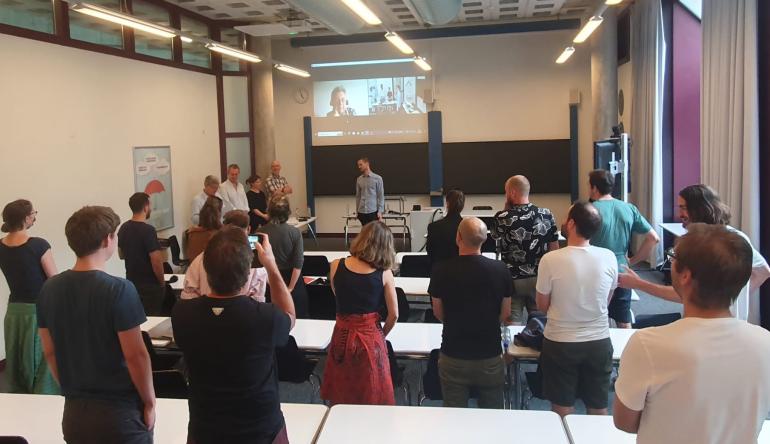
On Thursday 29 June 2023, Kevin Emery defended his thesis entitled "Handling missing data in multichannel life course analysis" at the University of Lausanne. The LIVES Centre warmly congratulates him on obtaining his doctorate in applied mathematics for the humanities and social sciences!
One of the main challenges of life course methodology is the lack of a commonly accepted solution to deal with missing data (Piccarreta and Studer, 2019; Liao et al., 2022). The main objective of this thesis is to fill this gap. Dr Emery proposes innovative methods to improve existing approaches and fill the gaps in the imputation of longitudinal categorical data.
This thesis addresses the challenge of dealing with missing data, which is an unavoidable problem in quantitative studies. The appropriate handling of missing data is complex and can have a significant impact on statistical results and conclusions. Particular emphasis is placed on life-course data. Life-course data have characteristics that require specific treatment of missing data. Firstly, the longitudinal structure is crucial, as life-courses are often considered in their entirety. Furthermore, due to their longitudinal nature, there are usually several consecutive missing observations. This occurs when there are waves of data collection missed by individuals or when they drop out of the survey. These data are then generally coded as categorical data. Consequently, standard methods, generally developed for numerical variables, are difficult to apply. Finally, such data are characterised by few transitions.
President :
- M. Francesco PANESE, Professor and Faculty Vice-Dean
Thesis director :
- M. André BERCHTOLD, Professor and ISS Director
Members of the jury :
- Mme Caroline ROBERTS, Assistant Professor at the University of Lausanne
- M. Matthias STUDER, Professor at the Institut de Démographie et Socioéconomie (IDESO) of the University of Geneva
- M. Brendan HALPIN, Lecturer at the Sociology department of the University of Limerick, Ireland

